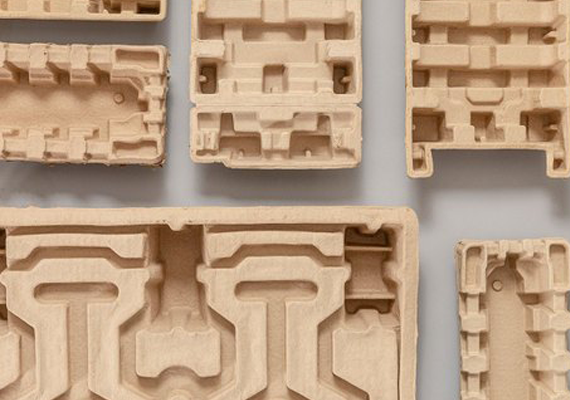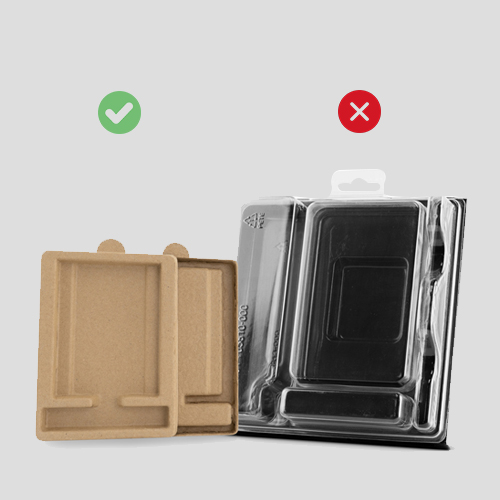Plastic and EPS pollution is one of the most imperative ecological issues globally. There is widespread evidence that plastic and thermocol are contaminating our waters, and wildlife and negatively impacting human health. Animals do not recognize polystyrene foam as an artificial material and may even mistake it for food.
Every year, the world produces over 15 million metric tons of polystyrene, and the global recycling rate is 0.9%. That leaves three possible methods for disposing of polystyrene: burn, landfill, or litter in the environment. And because polystyrene is chemically stable, non-biodegradable, and neither bacteria nor microorganisms feed on it, it’s an environmental catastrophe that almost perpetually lingers.
Plastic/polystyrene-based packaging is a large contributor to the global crisis and the search for plastic-free packaging has helped to push the demand for fibre-based packaging.

Moulded pulp manufacturing is a completely sustainable method. It is used for protective packaging for a wide range of products. 100% of the products are made from recycled paper.
The pulp trays are a biodegradable alternative for thermocol/Styrofoam-based packaging. They also provide shock absorption during transport and are easily stackable.
Newspapers, scrapped boxes, paperboard, magazines, etc. which are disposed of from households and industries are pulped and moulded into a specific custom-made cavity.
Moulded pulp manufacturing is a completely sustainable method. It is used for protective packaging for a wide range of products. 100% of the products are made from recycled paper.
The pulp trays are a biodegradable alternative for thermocol/Styrofoam-based packaging. They also provide shock absorption during transport and are easily stackable.
Newspapers, scrapped boxes, paperboard, magazines, etc. which are disposed of from households and industries are pulped and moulded into a specific custom-made cavity.



The precision of our pulp packaging is defined by the precision in the engineering of the mould. The moulds are made by highly skilled developers.The design of moulded pulp packaging is 100% customized. The pulp packaging is designed considering the size, shape, weight, application and stacking of the product. Along with the structural requirements, branding requirements are also considered – every piece can be customized with a debossed logo, artwork, model number, etc.
Since the last decade, most of the developed countries are phasing out the use of polystyrene, single-use plastic, thermocol and Styrofoam partially or completely. Central and state governments are gradually putting bans on the usage of the mentioned non-biodegradable products.
Companies worldwide are taking strides to change their packaging practice to an alternative, more sustainable mode of packaging.
Using our fibre-based packaging form can highlight your company’s sustainable stance and can significantly help you better place your product in the global market. We envision ourselves to be a leader in innovative packaging that is both sustainable and commercially competitive.

| -- | Molded Pulp | EPS/ Thermocol |
|---|---|---|
| Material | 100% Recycled Paper | Resin Based |
| Sustainability | Recyclable, biodegradable & compostable | Non-biodegradable |
| Price | Stable | Volatile |
| Cushioning | Excellent vibration & cushioning properties | Good vibration & cushioning properties |
| Shipping & Storage | Easily nests | Does not nest |
| Climate Tolerance | Unaffected by extreme temperature | Temperature affects brittleness |
| Static | Static neutral | Requires treatment with antistatic agents |
| Protection | Geometry | Density |